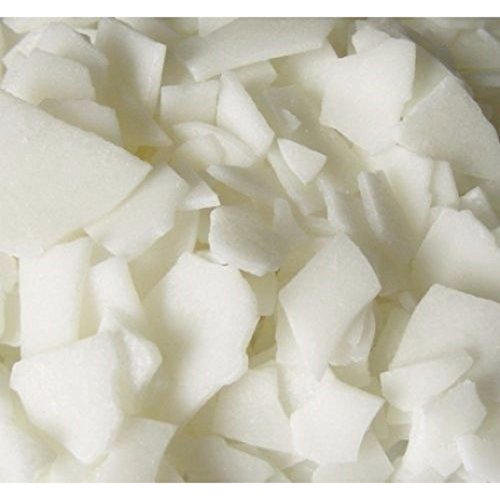Top 6 recommendation stephen zepke 2018
When you looking for stephen zepke, you must consider not only the quality but also price and customer reviews. But among hundreds of product with different price range, choosing suitable stephen zepke is not an easy task. In this post, we show you how to find the right stephen zepke along with our top-rated reviews. Please check out our suggestions to find the best stephen zepke for you.
1. Deleuze, Guattari and the Production of the New (Continuum Studies in Continental Philosophy)
Description
Gilles Deleuze and Felix Guattari have arguably gone further than anyone in contemporary philosophy in affirming a philosophy of creation, one that both establishes and encourages a clear ethical imperative: to create the new.
In this remarkable undertaking, these two thinkers have created a fresh engagement of thought with the world. This important collection of essays attempts to explore and extend the creative rupture that Deleuze and Guattari produce in the Capitalism and Schizophrenia project.
The essays in this volume, all by leading thinkers and theorists, extend Deleuze and Guattari's project by offering creative experiments in constructing new communities - of ideas and objects, experiences and collectives - that cohere around the interaction of philosophy, the arts and the political realm. Deleuze, Guattari and the Production of the New produces new perspectives on Deleuze and Guattari's work by emphasising its relevance to the contemporary intersection of aesthetics and political theory, thereby exploring a pressing contemporary problem: the production of the new.
Gilles Deleuze and Felix Guattari have arguably gone further than anyone in contemporary philosophy in affirming a philosophy of creation, one that both establishes and encourages a clear ethical imperative: to create the new.
In this remarkable undertaking, these two thinkers have created a fresh engagement of thought with the world. This important collection of essays attempts to explore and extend the creative rupture that Deleuze and Guattari produce in the Capitalism and Schizophrenia project.
The essays in this volume, all by leading thinkers and theorists, extend Deleuze and Guattari's project by offering creative experiments in constructing new communities - of ideas and objects, experiences and collectives - that cohere around the interaction of philosophy, the arts and the political realm. Deleuze, Guattari and the Production of the New produces new perspectives on Deleuze and Guattari's work by emphasising its relevance to the contemporary intersection of aesthetics and political theory, thereby exploring a pressing contemporary problem: the production of the new.
2. Art History after Deleuze and Guattari
Description
Though Gilles Deleuze and Felix Guattari were not strictly art historians, they reinvigorated ontological and formal approaches to art, and simultaneously borrowed art historical concepts for their own philosophical work. They were dedicated modernists, inspired by the German school of expressionist art historians such as Riegl, Wlfflin, and Worringer and the great modernist art critics such as Rosenberg, Steinberg, Greenberg, and Fried. The work of Deleuze and Guattari on mannerism and Baroque art has led to new approaches to these artistic periods, and their radical transdisciplinarity has influenced contemporary art like no other philosophy before it. Their work therefore raises important methodological questions on the differences and relations among philosophy, artistic practice, and art history. In Art History after Deleuze and Guattari international scholars from all three fields explore what a Deleuzo-Guattarian art history could be today.
Contributors
ric Alliez (Kingston University, Universit Paris VIII), Claudia Blmle (Humboldt Universitt zu Berlin), Jean-Claude Bonne (cole des Hautes tudes en Sciences Sociales), Ann-Cathrin Drews (Humboldt Universitt zu Berlin), James Elkins (School of the Art Institute of Chicago), Sascha Freyberg (Max Planck Institute for the History of Science), Antoine lHeureux (independent researcher), Vlad Ionescu (Hasselt University), Juan Fernando Meja Mosquera (Pontificia Universidad Javeriana), Gustavo Chirolla Ospina (Pontificia Universidad Javeriana), Bertrand Prvost (Universit Bordeaux Montaigne), Elisabeth von Samsonow (Akademie fr bildende Knste Wien), Sjoerd van Tuinen (Erasmus University Rotterdam), Kamini Vellodi (Edinburgh College of Art), Stephen Zepke (independent researcher)
3. Deleuze and Contemporary Art (Deleuze Connections EUP)
Description
What is the importance of deconstruction, and the writing of Jacques Derrida in particular, for literary criticism today? Derek Attridge argues that the challenge of Derrida's work for our understanding of literature and its value has still not been fully met, and in this book, which traces a close engagement with Derrida's writing over two decades and reflects an interest in that work going back a further two decades, shows how that work can illuminate a variety of topics.Chapters include an overview of deconstruction as a critical practice today, discussions of the secret, postcolonialism, ethics, literary criticism, jargon, fiction, and photography, and responses to the theoretical writing of Emmanuel Levinas, Roland Barthes, and J. Hillis Miller. Also included is a discussion of the recent reading of Derrida's philosophy as 'radical atheism', and the book ends with a conversation on deconstruction and place with the theorist and critic Jean-Michel Rabat.
Running throughout is a concern with the question of responsibility, as exemplified in Derrida's own readings of literary and philosophical texts: responsibility to the work being read, responsibility to the protocols of rational argument, and responsibility to the reader.
4. Sublime Art: Towards an Aesthetics of the Future (Crosscurrents)
Description
Stephen Zepke shows how the idea of sublime art waxes and wanes in the work of Jean-Franois Lyotard, Gilles Deleuze and Felix Guattari, Jacques Derrida, Jacques Rancire and the recent Speculative Realism movement.5. Art as Abstract Machine (Studies in Philosophy) by Stephen Zepke (2011-05-18)
6. Deleuze, Guattari and the Production of the New (Continuum Studies In Continental Philosophy) by O'Sullivan, Simon; Zepke, Stephen published by Continuum Hardcover









Recent Comments